When you are grocery shopping, the costs can add up extremely quickly — especially as a budget-constrained college student. However, there are some tricks to put in use the next time you venture to the grocery store to avoid overspending. Read on to officially become a champ at shopping for food on a budget.
1. Buy in bulk
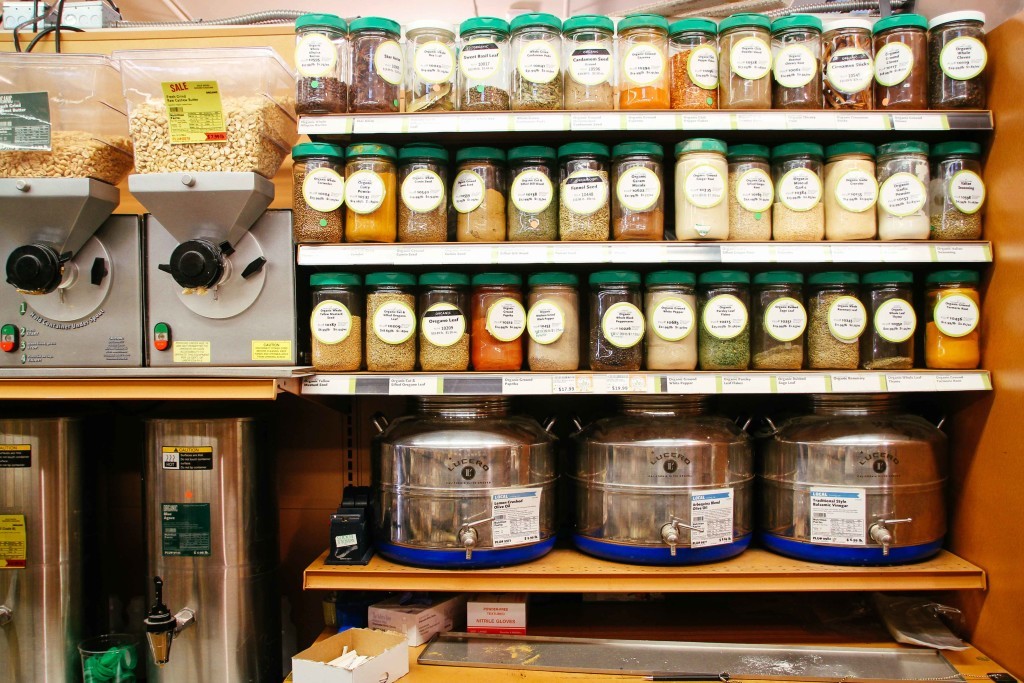
Photo by Helen Poon
This one may not feel like you’re saving money in the moment, but it technically is much cheaper to buy in bulk. Stores like Whole Foods are notorious for their high prices, but their bulk section is surprisingly affordable and full of delicious variety.
Stock up on products like nuts, dried fruit and seeds. Because you’ll be buying large quantities, it’s important to purchase food that will last a while. Amazon is also a great place to look for bulk food deals if you’re not feeling like leaving your room but still need food.
2. Make a list of what to buy
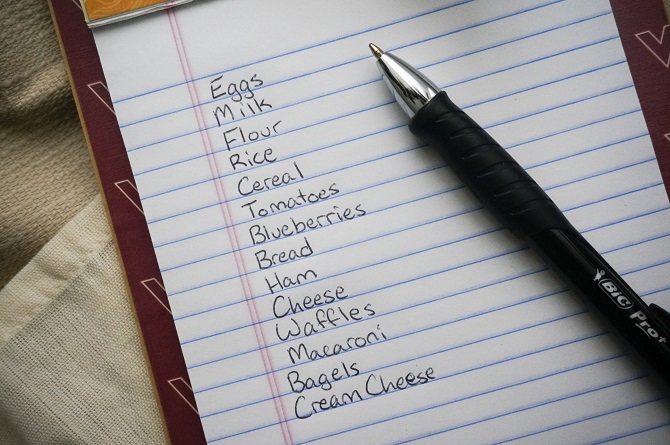
Photo by Maddie Lanier
If you go into the store with a plan, you’re much less likely to make impulsive purchases that can tack on more digits to the final receipt. Before heading to the grocery store, brainstorm what you truly need, then make a list and stick to it. Not only will you save money by avoiding unnecessary items, you’ll also avoid forgetting any essentials.
3. Buy the store brand
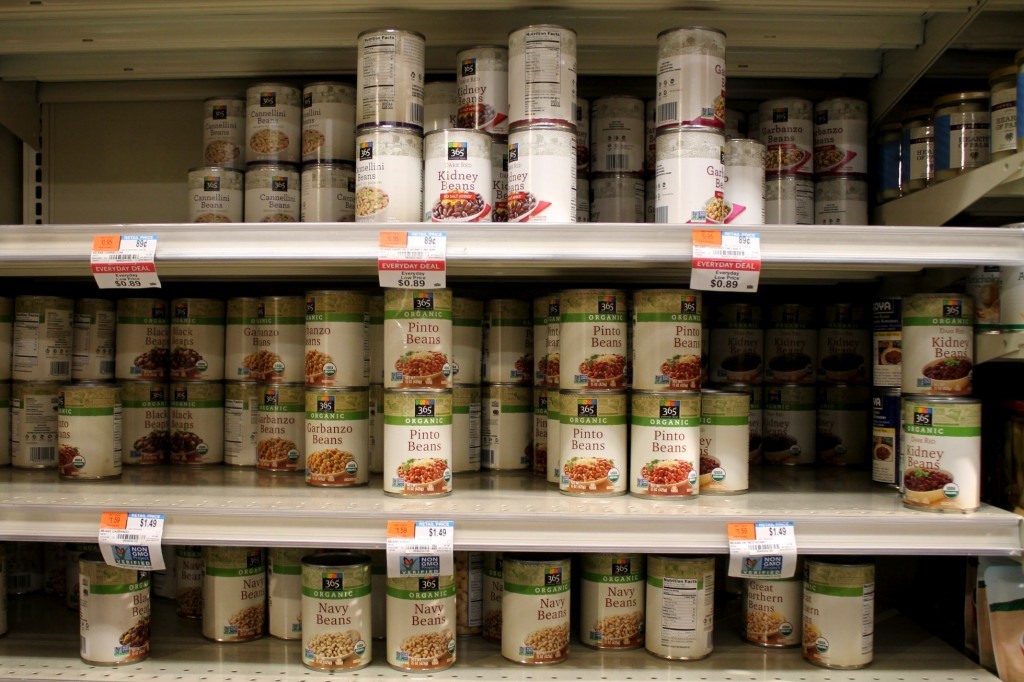
Photo by Caty Schnack
Typically a generic or store brand is at least a few dollars less than a name brand product. For example, stores like Whole Foods and Target sell food under their brands 365 Everyday Value and Simply Balanced, respectively. The store’s own brand is likely a nearly identical option and one that will save you money, too — it’s a win-win.
4. Don’t buy pre-cut produce
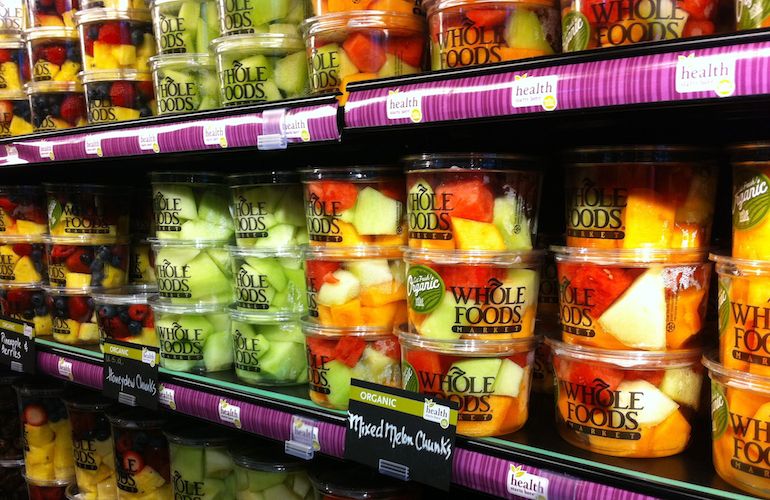
Photo courtesy of eat-spin-run-repeat.com
We’ve all been there: standing in front of the refrigerated case of perfectly cubed, colorful and neatly packaged fruits and vegetables, thinking about how much easier it is to just buy the ready-to-eat options instead of actually cutting produce up at home. However, pre-cut fruits and vegetables are such an unnecessary expense; it may save a few minutes of prep, but your wallet will thank you for avoiding it.
5. Plan your meals
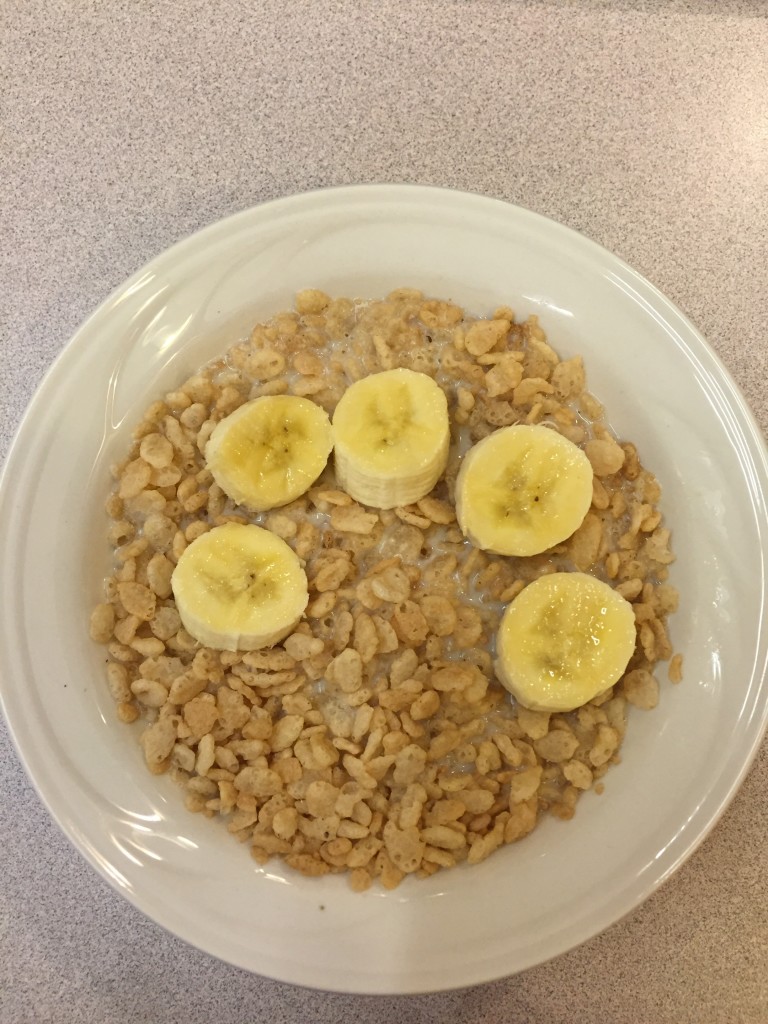
Photo by Aine Hardaker
Not only will this tip save you money, it will also save time. When you know exactly what’s on the menu for the week, you can avoid unnecessary expenses and compare prices on ingredients. Some stores, like Trader Joe’s, are so inexpensive that you can buy a whole week’s worth of dinners for a great price.
6. Hit up a discount grocery store

Photo by Taylor Michie
Everybody has a store near them that sells groceries at a steeply discounted price, whether it be Aldi, Fareway, or Big Lots. While sometimes overlooked, these stores have great deals and can definitely help in saving money while shopping for food.
7. Avoid the cash register purchases

Photo by Eva Reynolds
Yes, I personally know how tempting it can be to toss a pack of gum or a bag of Skittles into your cart while waiting to pay in line at the grocery store. But, it’s also a quick way to add up costs — because everything is relatively cheap, it’s more tempting to buy multiple items. Avoiding purchases like these is key, as they’re items you don’t need and most likely aren’t even nutrious enough to incorporate into a meal.
8. Sign up for your store’s newsletter

Photo by Delissa Handoko
Grocery stores often have weekly flyers or newsletters that contain the best deals or coupons for items in the store that week. By subscribing to such publications, you can stay in the loop on deals and plan on which days to go to the store according to what will be sold at a discounted price when. Whole Foods and Trader Joe’s both issues these flyers.
9. Only buy some organic produce, not all

Photo by Cherie Mak
Anyone who has walked into a produce section can attest to the startling price difference between organic and non-organic options. However, you can still be healthy and only buy a few organic items.
If you’re trying to avoid pesticides, a good way to save costs is to opt for the non-organic option on items with protective peels, such as bananas or avocados. Another option is to buy organic from the “Dirty Dozen” (produce most often contaminted with pesticides) and everything non-organic from the “Clean Fifteen” (those that had the least amount of pesticides).
10. Avoid buying plastic water bottles

Gif courtesy of giphy.com
Not only is the one-time purchase of a reusable bottle an environmentally concious move, it also eliminates the cost of buying crates of plastic ones. When you can get water for free from the water fountain or the tap, it saves a lot of money to cut the cost of weekly Poland Spring purchases (not to mention, it saves you from lugging all of those bottles from the store).
Now you’re ready to go forth and conquer the aisles.

Gif courtesy of tumblr.com


